Style Guide: Blackwork Tattoos
Everything about the origins and stylistic elements of Blackwork tattoos.
- Tribal tattoos make up a large portion of the Blackwork style, however Dark Art, illustrative and graphic art, etching or engraving style, and even lettering or calligraphic scripts have been considered to be within the vein of Blackwork tattooing when only black ink is used.
- Any design made up of solely black ink without the addition of color or grey shading can be classified as a Blackwork piece.
- The origins of Blackwork lay within ancient tribal tattooing. Polynesian pieces, known for their often abstract patterns made of shapes and swirls in large swaths of black ink, are a huge influence on the style in particular.
- Styles of Blackwork Tattoos
- Origins of Blackwork Tattoos
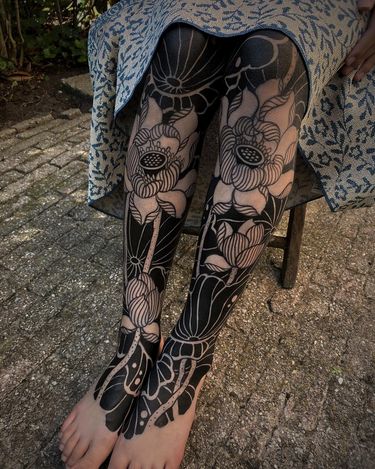
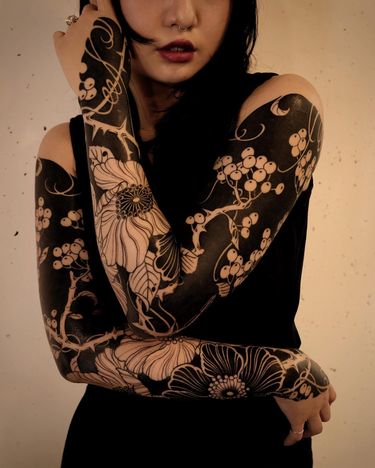
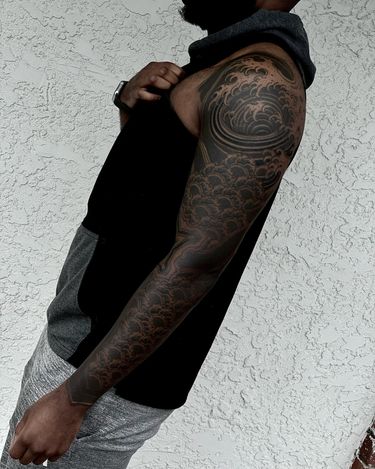
Immediately recognizable by the lack of vivid chroma hues and tints of grey, Blackwork-style tattooing has garnered popularity over the recent years. But, believe it or not, all-black fills and designs are not just a passing trend. In this article we explore the historical origins, contemporary styles, and some artists who have mastered Blackwork tattoos.
Styles of Blackwork Tattoos
Though tribal tattoos do make up a large portion of the Blackwork style, recently other aesthetics have been added to the roster as well. Dark Art, illustrative and graphic art, etching or engraving style, lettering and calligraphic scripts are all considered to be within the vein of Blackwork. In short, the style is a general term for tattoos that are made exclusively with black pigment.
Elements of this style of tattoo include thick outlines and bold, solid, black areas juxtaposed by intentional negative space or ‘skin-breaks’. Any design made up of solely black ink without the addition of color or grey shading can be classified as a Blackwork piece.
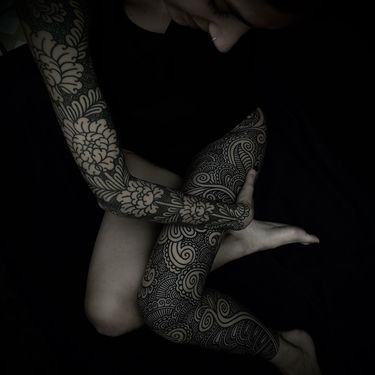
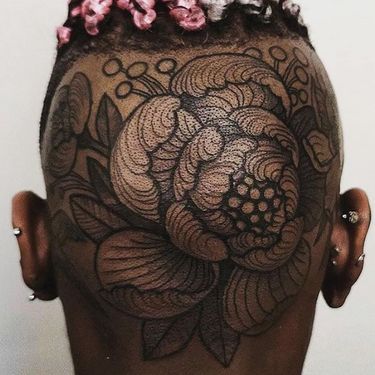
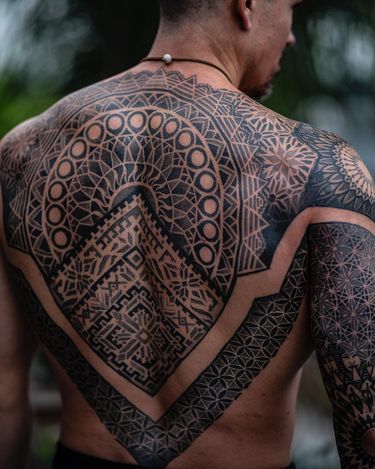
Origins of Blackwork Tattoos
Although Blackwork tattoos have come to mean something much different in modern days, the origins of the style lay within ancient tribal tattooing.
Polynesian pieces, known for their often abstract patterns made of shapes and swirls in large swaths of black ink, are a huge influence on the style in particular. Curving around the organic contours of the body, these tattoos were usually based on the person’s personality, with the tattooist using symbology and tribal iconography to illustrate their life story or legends. Frequently Polynesian tattoos embodied a person’s lineage, beliefs or affiliations. They were protective, and absolutely sacred in nature. Polynesian tattooists were regarded almost like shamans or priests who held the divine knowledge of tattooing ritual. It was these ancient aspects of culture that largely influenced Blackwork tattooing of today, and many tattooists that work within the tribal style still hark back to these ancient aesthetics.
Another inspiration for Blackwork tattooing is gleaned from what is typically regarded as Spanish Blackwork, which is actually fine embroidery on fabric. Tightly twisted black silk threads were used either in a counted stitch, or in a freehand manner, on white or light colored linen fabrics. The designs ranged from florals such as labyrinthine illustrations of ivy and blossoms to more complex compositions like stylized graphical knots.
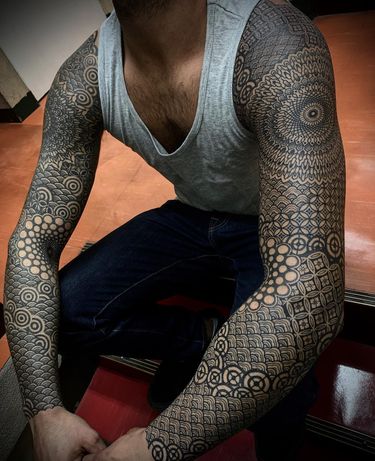
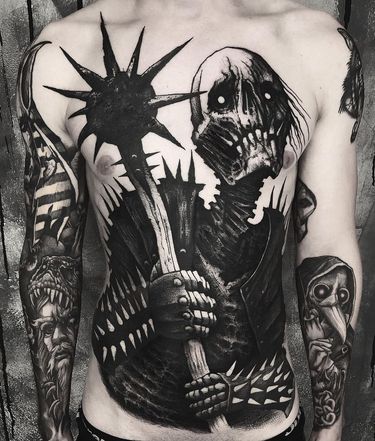
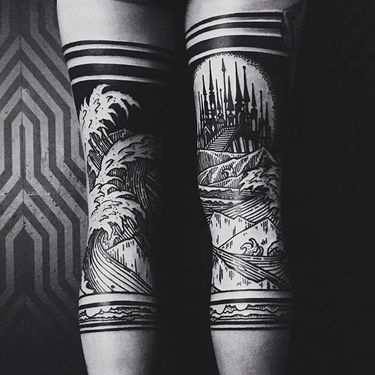
No matter how far these folk arts may seem to be disassociated from contemporary Blackwork tattooing, it helps to recognize the different facets of historical artistic techniques and mediums that inform modern styles and aesthetics. Henna, for instance, can be traced back to the Bronze Age which spans from 1200 BC to 2100 BC. This was 4,000 years ago in the history of humankind, and yet the application of Henna dye, called Mehndi, can easily be connected to present day ornamental and decorative tattoos, most of which are considered a form of Blackwork tattoo simply due to the lack of color. Due to the ancient genesis of Henna, artists who work in this style may also tend towards more tribal or primitive designs. It’s all a matter of artistic personal expression and connection.
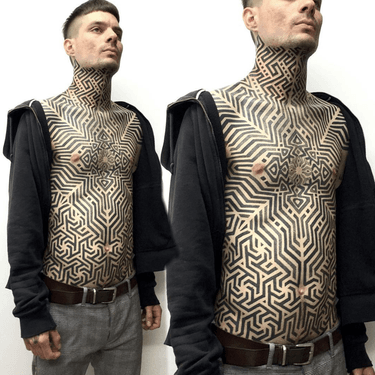
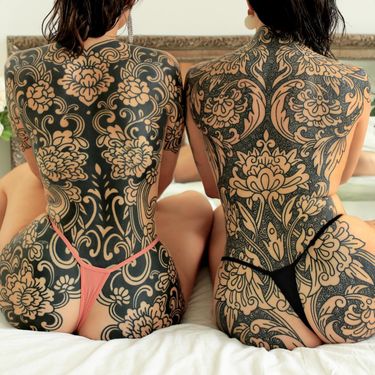
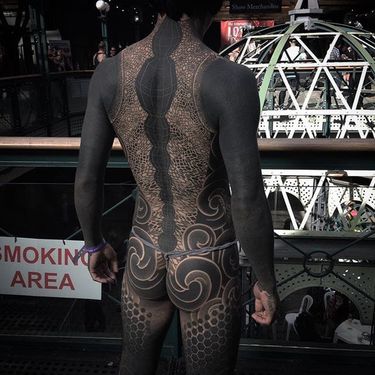
Blackwork tattoo artists working within the realm of Dark Art tend to have an illustrative approach that gleans inspiration informed by esoterica, alchemy, and other arcane hermetic iconography.
Another aesthetic linked to the esoteric arts is sacred geometry, a Blackwork tattoo style that is extremely popular. From ancient Hindu texts to Plato’s idea that God has put perfect geometric structures hidden within the entirety of the natural world, the ideals can be seen in fractals, mandalas, Kepler’s Platonic Solid, and more. Setting divine proportions to everything, sacred geometric tattoos often consist of lines, shapes, and dots and are informed by Buddhist, Hindu, and sigil symbology.
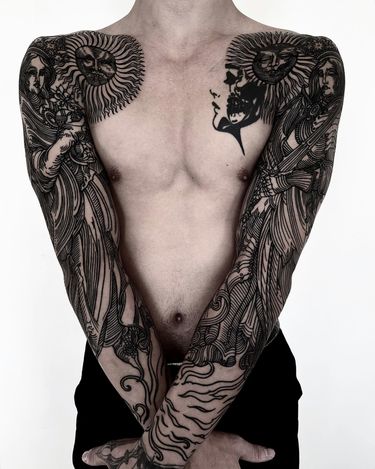
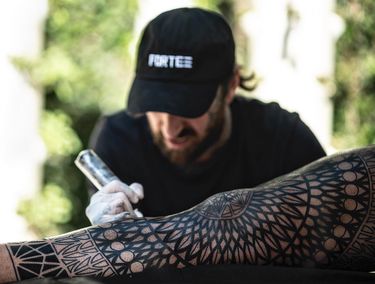
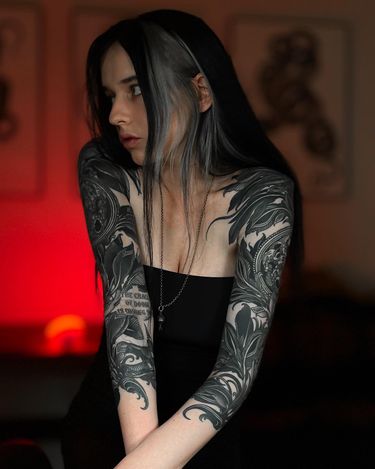
With such a vast array of aesthetics and personal approaches included in the overall stylings of Blackwork tattooing, the options are almost limitless. Due to the ease of clarity in design, the way that black ink pops on any skin color, and the fact that it ages incredibly well, makes this particular mode of tattooing adaptable to any design or concept. Since it is infused with the techniques of ancient times, Blackwork is concretely tried and true.
